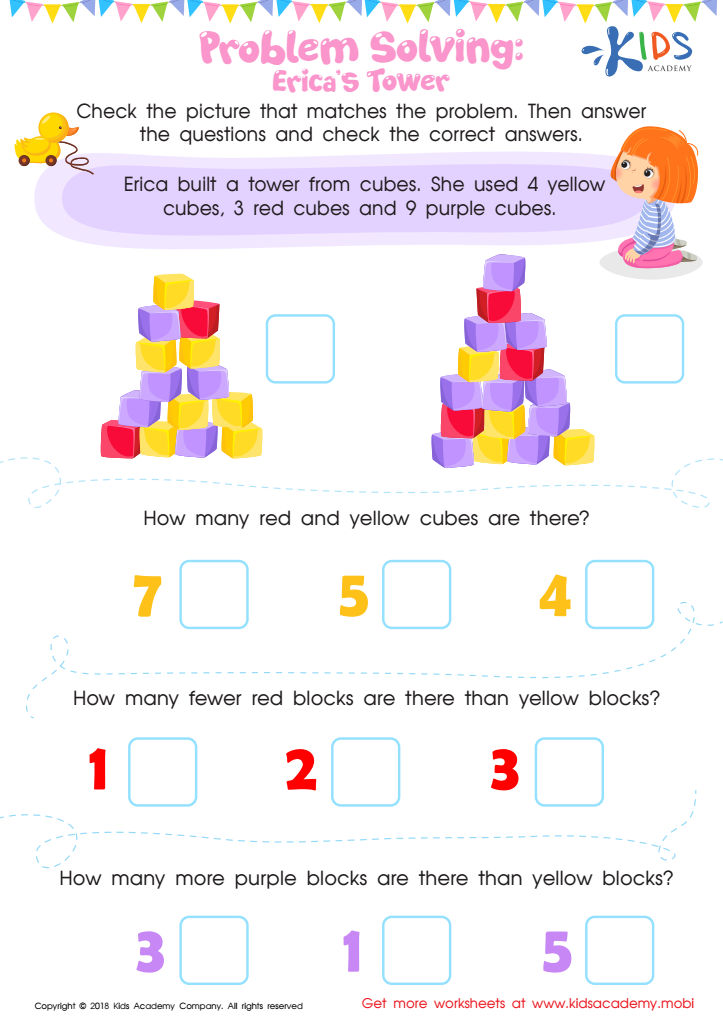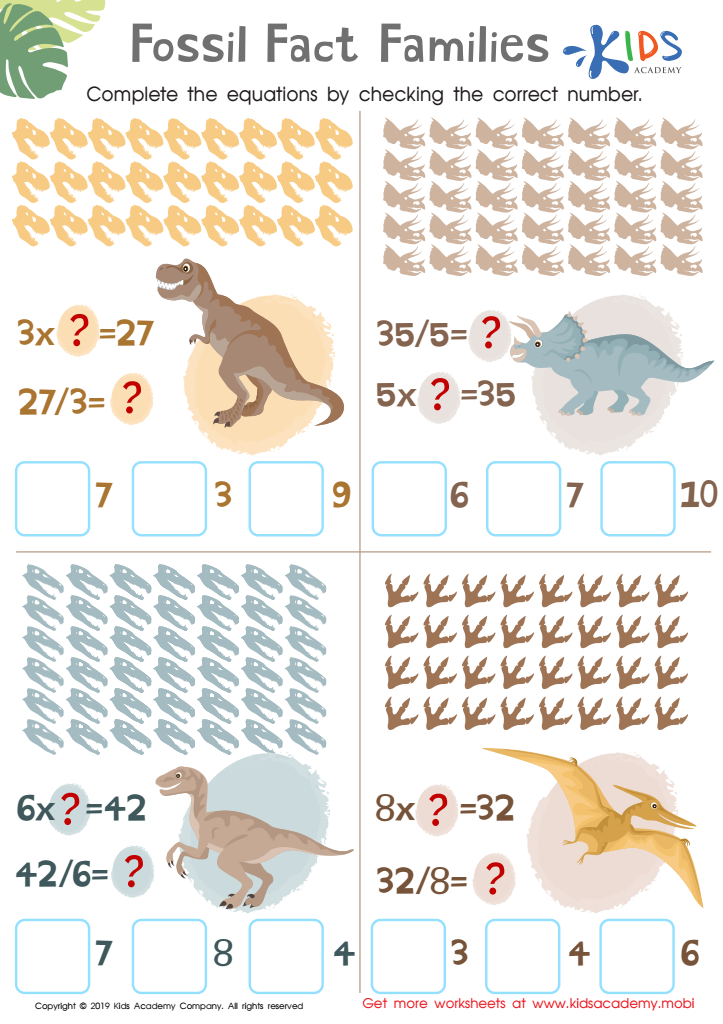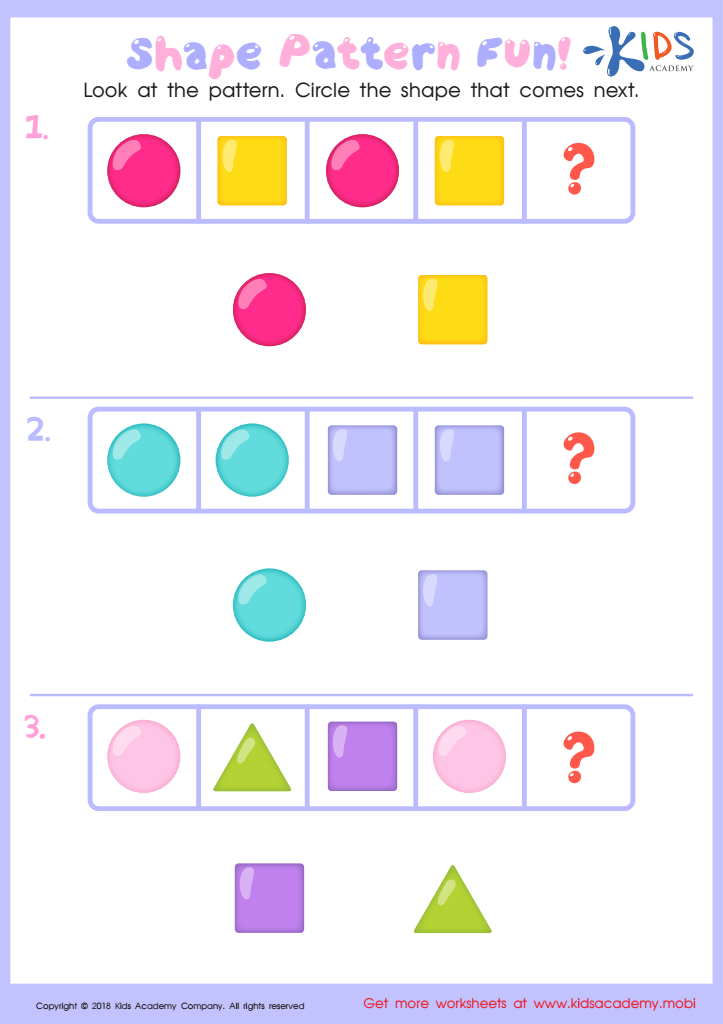Logical reasoning development Normal Worksheets for Ages 4-8
3 filtered results
-
From - To
Enhance your child's logical reasoning skills with our engaging worksheets designed specifically for ages 4-8. These normal worksheets provide a variety of fun exercises tailored to stimulate critical thinking and problem-solving abilities in young learners. Through interactive tasks such as puzzles, patterns, and visual reasoning challenges, children will develop essential cognitive skills in a playful manner. Our resources are perfect for teachers and parents looking to support early education. Unlock your child's potential and foster their love for learning with stimulating activities that make reasoning fun! Explore our collection today and watch your child's confidence soar!


Problem Solving: Erica's Tower Worksheet


Fossil Fact Families Worksheet


Shape Pattern Fun Worksheet
Logical reasoning development in children aged 4-8 is crucial for several reasons. At this stage, children are naturally inquisitive and tend to explore concepts related to cause-and-effect, patterns, and classification. Encouraging logical reasoning not only enhances their problem-solving skills but also supports cognitive development, which lays the foundation for future learning.
Parents and teachers who prioritize logical reasoning help children develop critical thinking abilities, enabling them to assess situations and make informed decisions. As children learn to recognize patterns and relationships, they become more adept at mathematical concepts, science inquiry, and everyday problem-solving. This not only aids academic success but also fosters creativity, as they begin to think outside the box and explore novel solutions.
Moreover, logical reasoning is essential for social interactions; it empowers children to understand different perspectives, engage in collaborative play, and resolve conflicts. Furthermore, the ability to think logically contributes to emotional intelligence, allowing children to process their feelings and comprehend those of others.
Ultimately, fostering logical reasoning from an early age equips children with essential skills that benefit their academic journey and personal growth, setting them on the path to becoming confident, critical thinkers.
 Assign to My Students
Assign to My Students



















